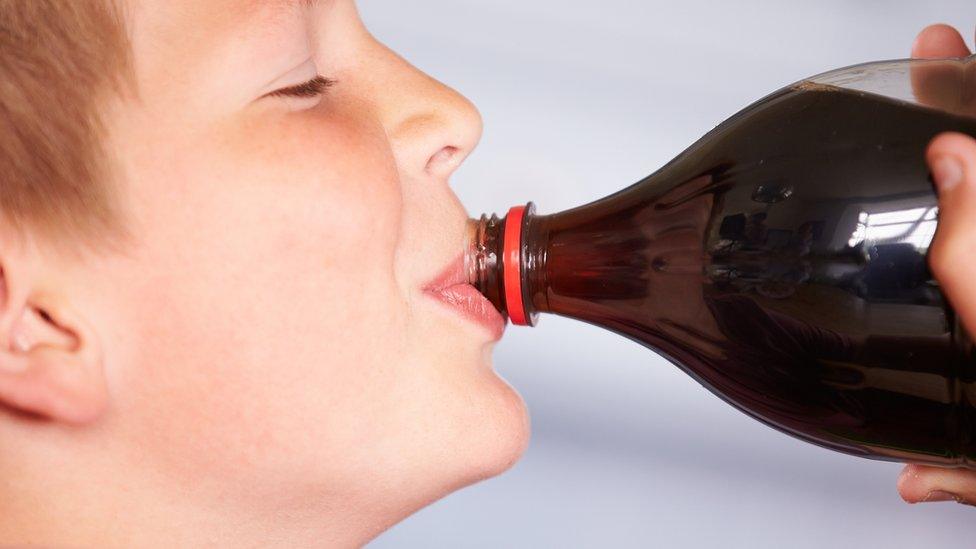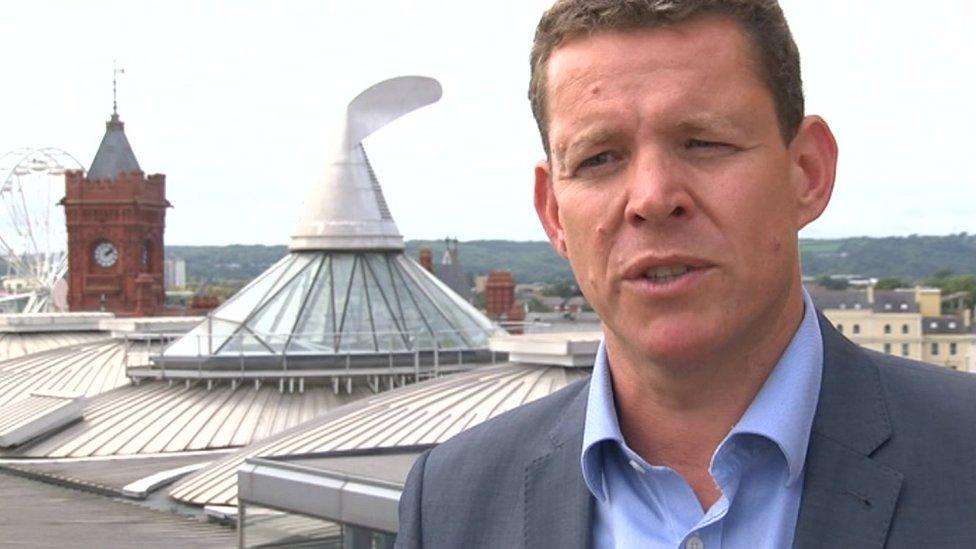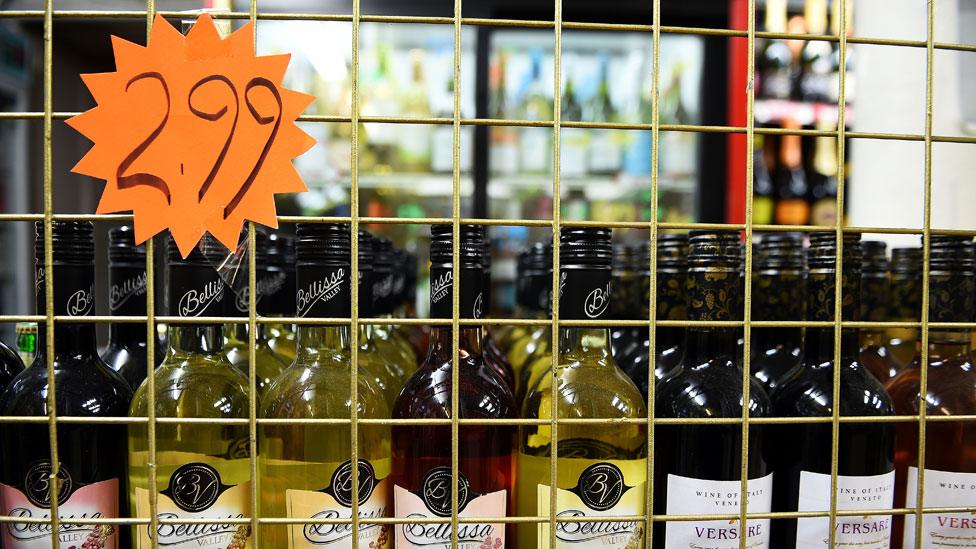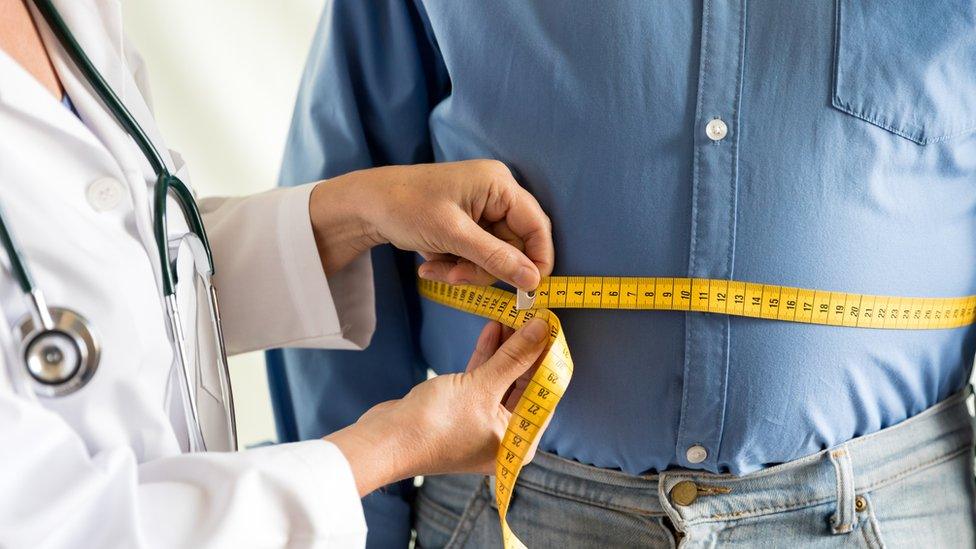Call for sugar tax cash to go to the Welsh NHS
- Published
- comments
Dai Williams from Diabetes UK Cymru says the sugar tax is "the least the food industry can do"
Money raised from a new tax on sugary drinks should be reinvested into the Welsh NHS, it has been claimed.
Diabetes UK Cymru's Dai Williams said cash from the tax should help address ill-health linked to sugar.
The Welsh Government is due to get £47m in extra funding over two years because of spending in England linked to the levy.
A spokeswoman for Welsh ministers said they had received "modest" funding that had already been allocated.
But First Minister Carwyn Jones suggested in March that some of the cash could be directed towards tackling childhood obesity.

Welsh ministers have welcomed the UK-wide levy - launched on 6 April - which will require soft drinks firms to pay 18p a litre on drinks with more than 5g of sugar per 100ml, or 24p if the drink has more than 8g of sugar per 100ml.
Many drinks firms have reformulated their products in response to the tax, and forecasts for how much the levy would raise have fallen from £520m to £240m.
Health bodies have called for a tax on sugary drinks as a measure to tackle obesity.
The National Survey for Wales 2016-17 found obesity in Wales was worse than in any other UK nation - with 59% of adults overweight and 23% classed as obese.
Mr Williams praised the tax and, calling for any extra money for Wales to be ring-fenced, said: "What we should be doing is putting that money into the NHS and supporting diabetes care for example, or using it to prevent obesity.
"We are currently spending £1bn in the NHS in Wales on diabetes in Wales - largely type two. I think any money raised should go someway to supporting that."
"It is causing ill-health, therefore the money raised from the tax on sugar should be used on making right what the industry has created," he added.
The sugar tax on soft drinks could mean an extra £47m for Wales
Dr David Bailey, chairman of the British Medical Association's Welsh Council, said: "We welcome the introduction of the tax but a sugar tax alone is not enough.
"The money raised from the tax must be reinvested into the NHS to help improve the nations health."
Original plans earmarked cash from the levy to help fund initiatives in English schools, worth around £400m a year, including PE lesson improvements, breakfast clubs and more sports activities.
However, the sums of cash originally forecasted were larger than how much will now be raised, and the schemes began before the levy was in place, suggesting not all the funding has come from the tax.
According to the Welsh Government, the schemes were worth £9.5m in 2017-18, £21m in 2018-19; and £26m in 2019-20 in extra funding.
As with all consequential extra funding, the sum is added to the overall Welsh budget and ministers in Cardiff decide how it is spent.

Rhun ap Iorwerth wants the money to go towards tackling obesity
Plaid Cymru's health spokesman Rhun ap Iorwerth, whose party has supported the tax for some time, said the money should go towards tackling obesity among young people as part of a "preventative health agenda".
"Improving the wellbeing of future generations starts with taking steps today to encourage more active and healthy lifestyles," he added.
But a UKIP Wales spokesman said: "UKIP has always stood on the side of informed consumer choice and personal responsibility. The proposals for a sugar tax are sour, not sweet."
First Minister Carwyn Jones told the Senedd in March, external he was considering directing some of the cash towards tackling obesity.
But he called the amount of funding "modest" and said it had been allocated "for maintaining free school breakfasts, new funding for summer holiday clubs, investing more in childhood immunisation and, of course, looking at taking forward a transformation fund in health".
A Welsh Government spokesman welcomed the levy and said it was pleased many drinks manufacturers had cut the sugar from their products before it came into force.
He added the Welsh Government would continue to allocate consequential funding in line with its priorities, including how additional funding could help to support child health.
- Published12 March 2018
- Published1 May 2018

- Published16 March 2016

- Published4 April 2018
